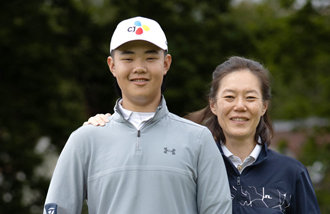Pres. candidates need to come clean
On her alleged involvement with the Jeongsoo Scholarship Foundation, ruling Saenuri Party presidential candidate Park Geun-hye denied anything to do with the organization. She seeks to distance herself from the matter by saying the foundation has been turned into a public organization, but the controversy seems to be turning into a political dispute. Park chaired the foundation`s board from 1995 to 2005. Philip Choi, the foundations current chairman, is a key aide to Park who served as a presidential security aide under the administration of her father Park Chung-hee. The foundation was named after Park Chung-hee and his wife Yook Young-soo. It wholly owns the daily Busan Ilbo and 30 percent of the broadcast network MBC. Under this circumstance, even if Park Geun-hye seeks to distance herself from the foundation by citing legal grounds, people are more likely to view her and the foundation as a bundle.
In an Aug. 13 interview with The Dong-A Ilbo, Park Geun-hye said, It is my personal wish that foundation directors exercise good judgment (about their resignations), but has avoided directly expressing her view. Insiders of the ruling party warn that unless she clarifies and answers the question, a crisis situation similar to those caused by controversies over her father`s 1961 military coup and his 1972 declaration of the Yushin regime could arise. The general consensus of the party is that Choi and board members should resign en masse and that the name of the foundation be changed. If Park Geun-hye severs ties with the foundation, its stakes in media organizations will be properly disposed of according to future broadcast policy.
Moon Jae-in, the presidential candidate of the main opposition Democratic United Party, is in hot water over former President Roh Moo-hyuns alleged comments over the Northern Limit Line, the de facto inter-Korean sea border, made in 2007. The centerpiece of this dispute is whether Roh spoke of shifting the border with then North Korean leader Kim Jong Il. Moon said he confirmed the minutes of the two leaders` summit talks in person, but the party refuses to disclose the content of their dialogue. What a pity for Moon to want to attach conditions for the disclosure of the minutes on an issue that can be easily resolved simply by checking facts.
Minutes of summit talks are classified as national intelligence and not subject to public disclosure. According to a law on presidential documentats and records, however, disclosure of the minutes is possible if more than two thirds of registered lawmakers approve it at the National Assembly. The ruling and main opposition parties control a combined 276 seats, which exceed two thirds (200) of the number of registered lawmakers. If Moon persuades his party as its presidential candidate, the party could agree on disclosing the minutes. If the minutes are kept at the National Intelligence Service, the parliamentary intelligence committee also could access them through consent by the two parties. If the contents of the minutes are confirmed, this will end unnecessary political debate. The public is angry over the lingering and destructive controversy over the dispute that could be resolved simply by releasing hard evidence.





